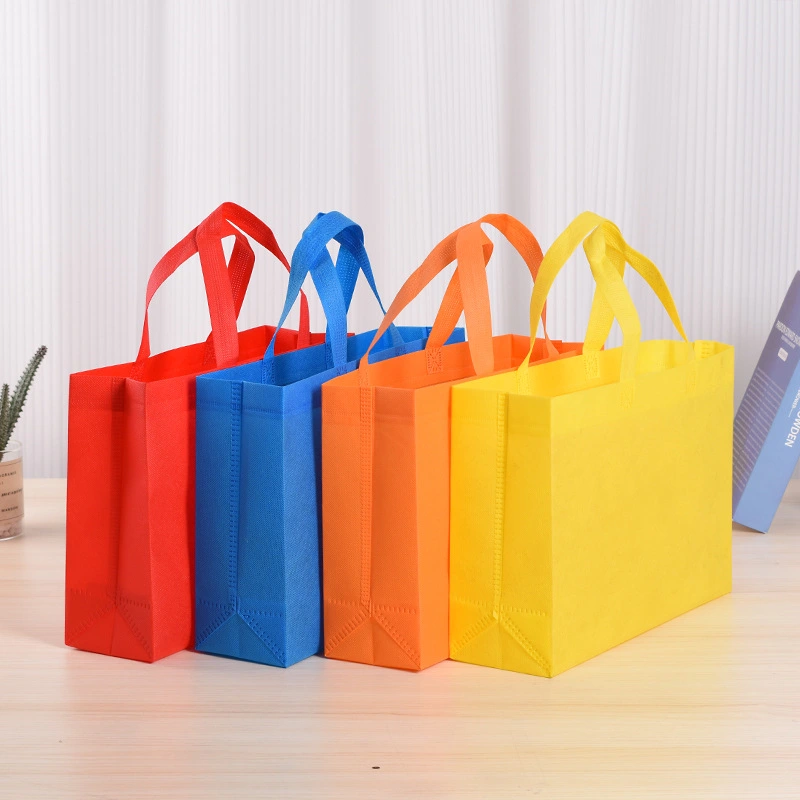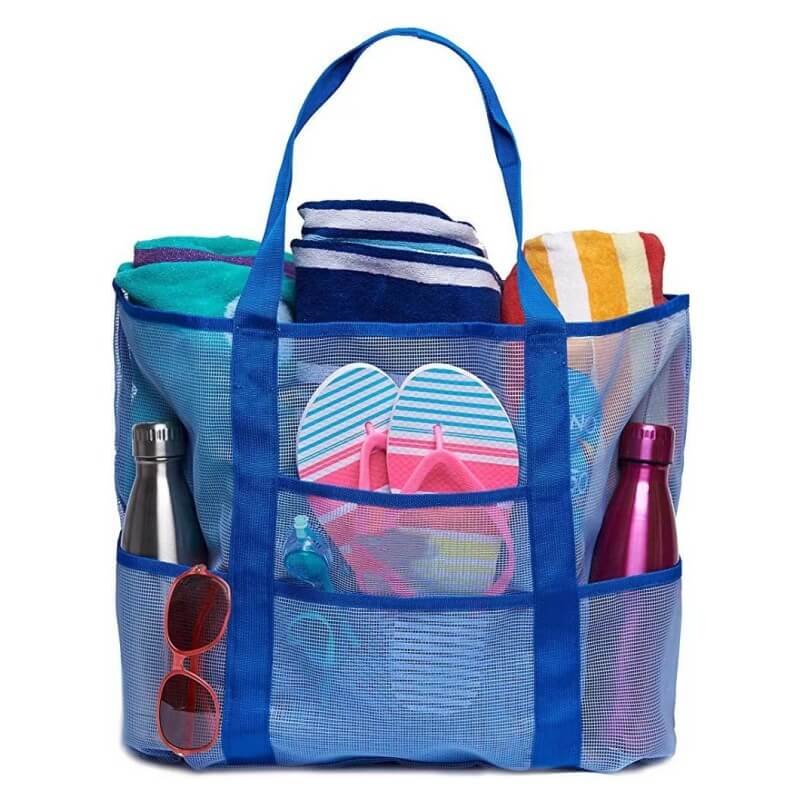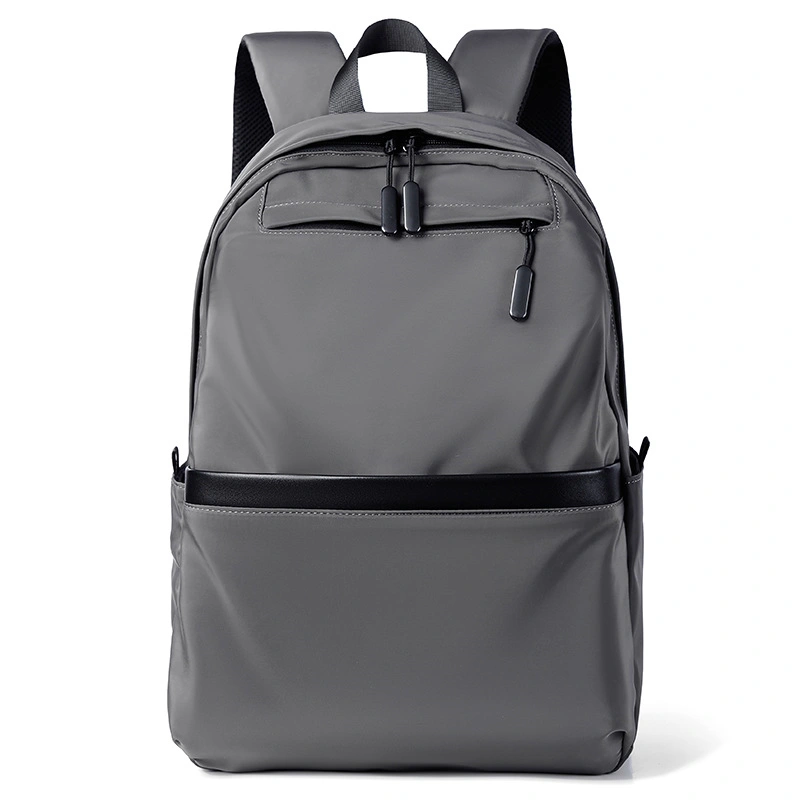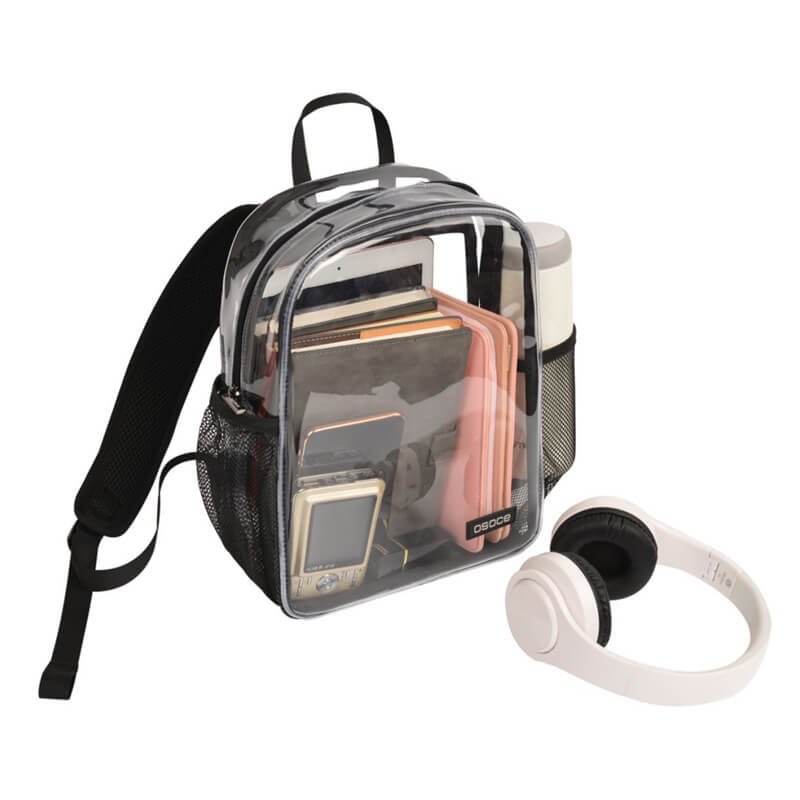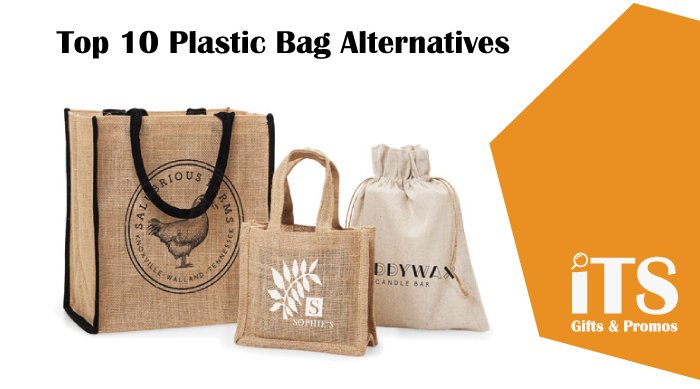
Top 10 Plastic Bag Alternatives: Eco-Friendly Options for Everyday Use
Plastic bags are convenient but harmful to the environment, polluting oceans, endangering wildlife, and filling landfills. Finding alternatives is crucial to reduce plastic waste and conserve resources.
For individuals, eco-friendly choices lower personal impact, and for businesses, they show environmental commitment.
This guide covers the top 10 sustainable alternatives to plastic bags, making it easier to make greener choices every day.
You Will Learn
The Problem with Plastic Bags
Plastic bags are one of the largest sources of pollution, with millions used and discarded daily.
There are several problems by using plastic bags.
Ocean Pollution: Plastic bags often end up in oceans, where they contribute significantly to marine pollution. These bags float on the water’s surface and can travel long distances, contaminating even remote marine environments.
Long Decomposition Time: Plastic bags can take hundreds to thousands of years to break down fully. They don’t biodegrade but instead fragment into smaller pieces, lingering in ecosystems indefinitely and contributing to long-term environmental damage.
Microplastics Contamination: As plastic bags break down, they turn into microplastics—tiny plastic particles that pollute soil, rivers, and oceans. Microplastics are nearly impossible to remove from the environment and are found in everything from drinking water to marine organisms, making their way up the food chain.
Toxic Substance Release: As plastic bags degrade, they release toxic chemicals into the environment. These substances can leach into soil and water, contaminating them and potentially harming plants, animals, and humans.
Wildlife Hazard: Animals, particularly marine creatures like turtles and birds, often mistake plastic bags for food. Consuming plastic can lead to internal injuries, malnutrition, or even death, posing a direct threat to biodiversity.
Non-Renewable Resource Consumption: Plastic bags are made from petroleum-based materials, relying heavily on fossil fuels. This consumption contributes to resource depletion and greenhouse gas emissions associated with plastic production.
Landfill Overload: Plastic bags occupy large amounts of landfill space, and since they don’t decompose, they add to the ongoing waste problem. Landfills reaching capacity leads to the need for more waste management solutions and increases environmental strain.

Why Alternatives Matter
Reduce Plastic Waste and Pollution: Eco-friendly bag alternatives minimize the amount of plastic waste generated, decreasing pollution in landfills, oceans, and natural habitats.
Support Healthier Ecosystems: Sustainable bags prevent harm to wildlife and ecosystems by avoiding the long-lasting and toxic impacts of plastic. They also reduce the risk of microplastic contamination in soil and water.
Lower Environmental Footprint: By choosing reusable and biodegradable options, we consume fewer resources and lower greenhouse gas emissions associated with plastic production.
Promote a Greener Culture: Individuals and businesses who switch to alternatives play a key role in shifting societal norms, inspiring others to make sustainable choices and fostering a collective commitment to environmental protection.
Criteria for Choosing Plastic Bag Alternatives
Sustainability: Choose bags that are biodegradable, reusable, or made from renewable materials. Sustainable options help reduce waste and support a circular economy.
Functionality: Look for bags that are durable and practical for daily use. They should handle varying weights and conditions, making them reliable replacements for plastic.
Affordability: Cost-effective alternatives are important for both individuals and businesses. Sustainable options should be reasonably priced to encourage widespread adoption.
Availability: Opt for bags that are easy to find and widely available, ensuring that eco-friendly choices are accessible and convenient for everyone.
Top 10 Eco-Friendly Plastic Bag Alternatives
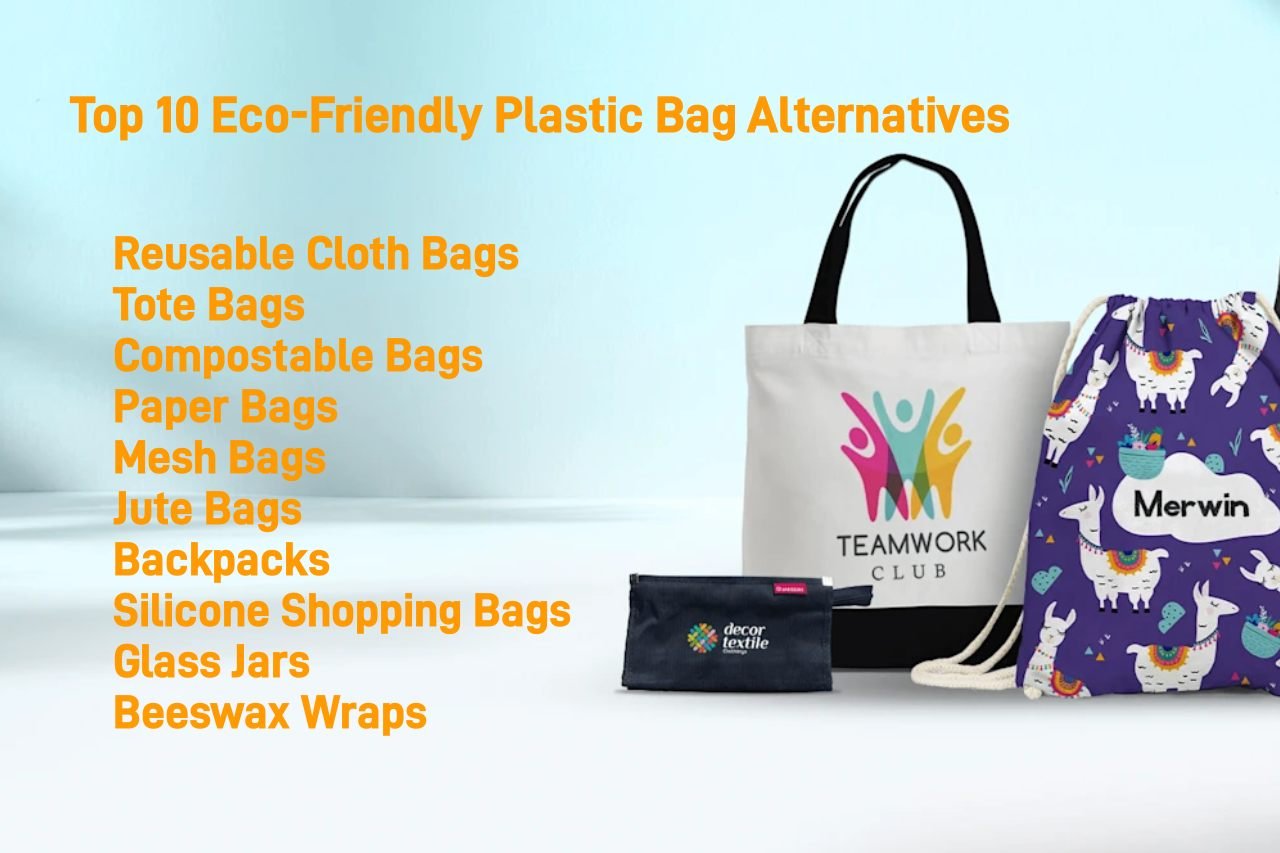
Reusable Cloth Bags
Materials: Typically made from natural fibers such as cotton, hemp, or canvas, which are strong and environmentally friendly.
Benefits:
- Durability: These bags are sturdy and can handle heavy loads, making them ideal for repeated use.
- Washability: Cloth bags are easy to clean, keeping them hygienic for groceries and other items.
- Biodegradability: At the end of their life, natural fiber bags will break down much faster than plastic, leaving a smaller environmental footprint.
Tips for Use:
- Care and Maintenance: Wash cloth bags regularly to maintain cleanliness, especially after carrying groceries.
- Storage: Store them in an accessible spot, like your car or near the door, so you remember to bring them along when shopping.
- Repair When Needed: Small tears or frays can often be fixed, extending the life of the bag and reducing the need for new ones.

Tote Bags
Material:
- Non-Woven: Lightweight and affordable, commonly used for promotional or single-event totes.
- Canvas: Durable and sturdy, ideal for everyday use and heavy loads.
- Cotton: Soft, breathable, and eco-friendly, often used for reusable shopping bags.
Features:
- Spacious: Typically designed with a large open compartment, perfect for carrying various items.
- Sturdy Handles: Reinforced handles make it easy to carry heavy items comfortably.
- Reusable and Washable: Most totes are washable, allowing for repeated use and easy maintenance.
- Customizable: Ideal for branding, with options for printing logos or designs, making them popular for businesses and events.
Best For:
- Everyday Shopping: Great for grocery shopping, errands, and carrying personal items.
- Promotional Events: Often used by businesses for giveaways, trade shows, or branding purposes.
- Beach and Travel: Large and sturdy enough to carry essentials like towels, clothes, and books.
Biodegradable and Compostable Bags
Materials: Commonly made from plant-based materials like PLA (polylactic acid) derived from cornstarch or other renewable resources. These materials are designed to break down more naturally than conventional plastics.
Benefits:
- Faster Decomposition: Unlike traditional plastic, these bags decompose relatively quickly under the right conditions, reducing their long-term environmental impact.
- Less Pollution: As they break down, they produce fewer harmful residues, making them safer for the environment.
Ideal for:
- Eco-Friendly Packaging: Small businesses can use these bags to show their commitment to sustainability, especially for single-use packaging needs.
- Composting: Many compostable bags can be added to industrial compost facilities (check local regulations), further reducing waste.
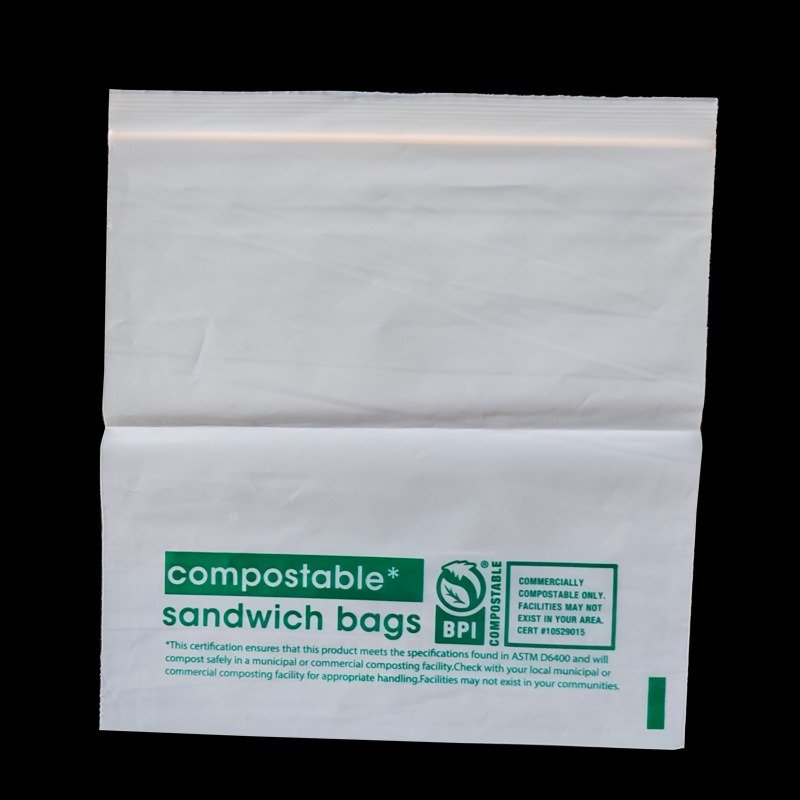
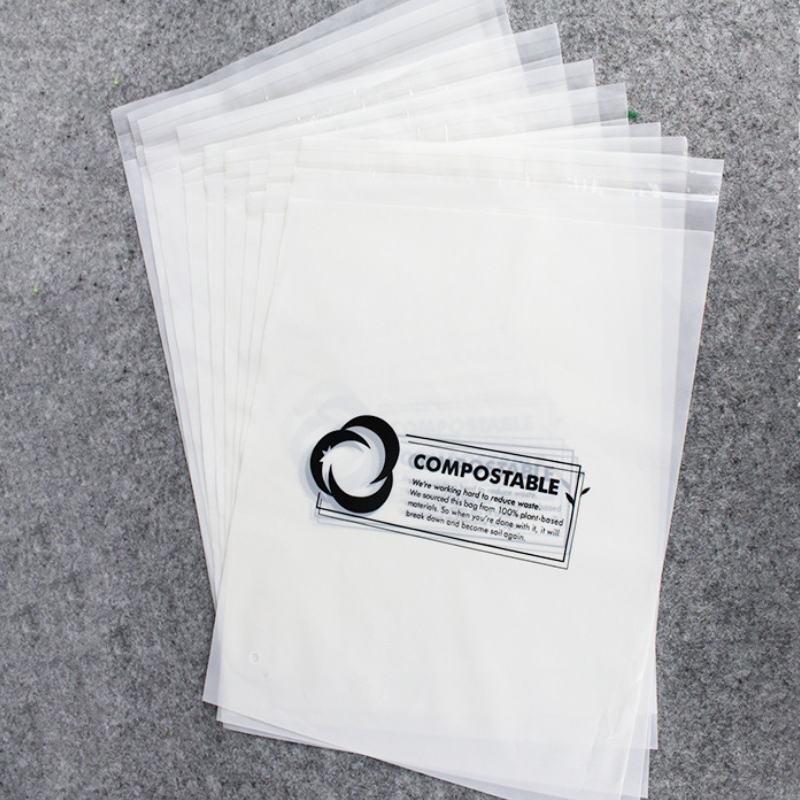
Paper Bags
Benefits:
- Recyclable: Paper bags can often be recycled, reducing waste and supporting a circular economy.
- Compostable: Unlike plastic, paper bags decompose naturally and can be composted, adding nutrients back to the soil.
- Lightweight: Paper bags are easy to carry and handle, making them a convenient option for various uses.
Drawbacks:
- Limited Durability in Wet Conditions: Paper bags can weaken or tear when exposed to moisture, making them less ideal for carrying items in rainy weather or transporting liquids.
Popular for:
- Grocery Stores and Retail: Many stores use paper bags as an eco-friendly alternative for shopping bags, providing a sustainable option that’s widely recognized and accepted.
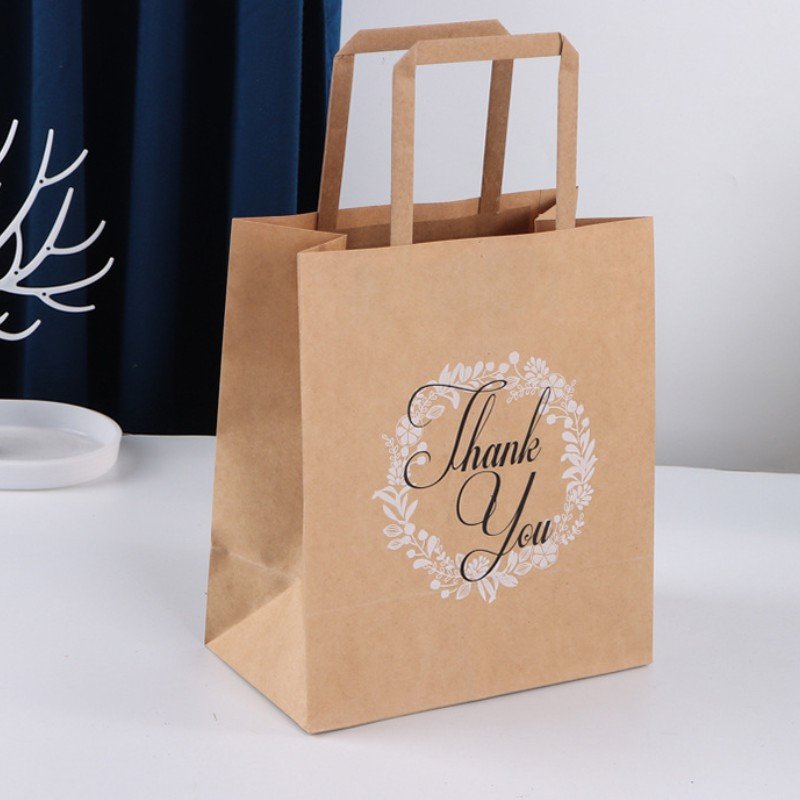
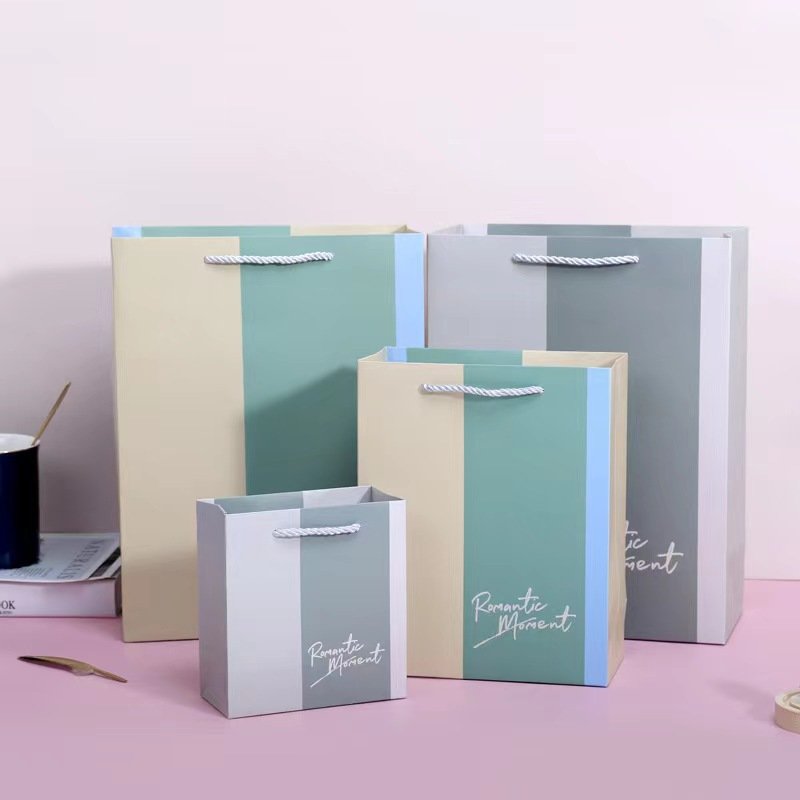
Mesh Produce Bags
Materials: Made from organic cotton or recycled polyester, these bags are durable and eco-friendly.
Best for:
- Fruits, Vegetables, and Bulk Items: Ideal for carrying fresh produce and bulk foods, allowing breathability to keep items fresh.
Pros:
- Lightweight: Easy to carry and adds minimal weight when shopping.
- Reusable: These bags can be washed and reused countless times, making them an excellent alternative to single-use plastic produce bags.
- Eco-Friendly: Helps reduce the need for disposable produce bags, cutting down on plastic waste and supporting a more sustainable shopping habit.
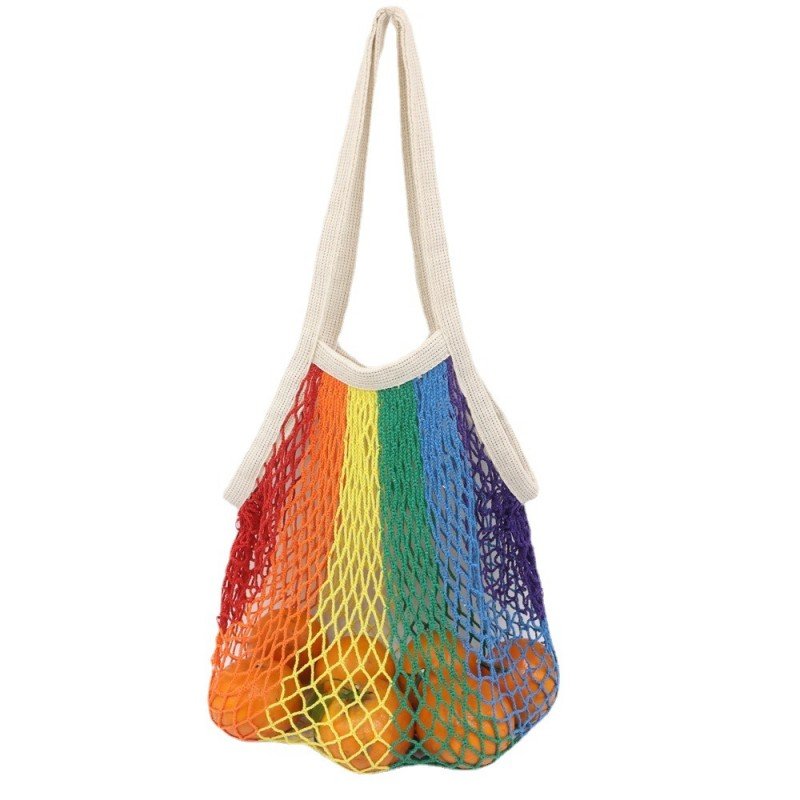
Mesh Bag
Jute and Burlap Bags
Eco-friendly Aspects:
- Natural Plant Fibers: Made from renewable jute or burlap, which are sustainable materials with minimal environmental impact.
- Biodegradable: At the end of their life, jute and burlap bags decompose naturally, making them an environmentally friendly choice.
Ideal for:
- Shopping and Beach Bags: Their durability and earthy style make them perfect for casual outings and shopping trips.
- Heavy-Duty Needs: These bags are strong and can carry heavy loads, making them ideal for bulk items or other high-capacity uses.
Pros:
- Strength: Jute and burlap bags are known for their sturdiness, supporting heavier items without tearing.
- Stylish: They have a natural, rustic appearance that appeals to eco-conscious consumers.
- Sustainable: Made from renewable resources, they offer a low-impact alternative to plastic bags.
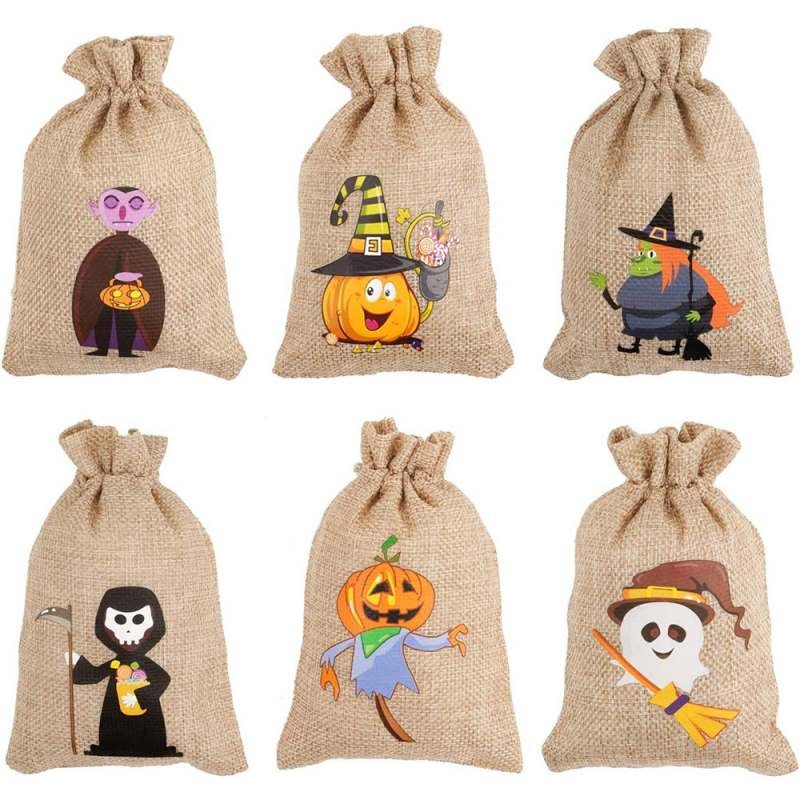
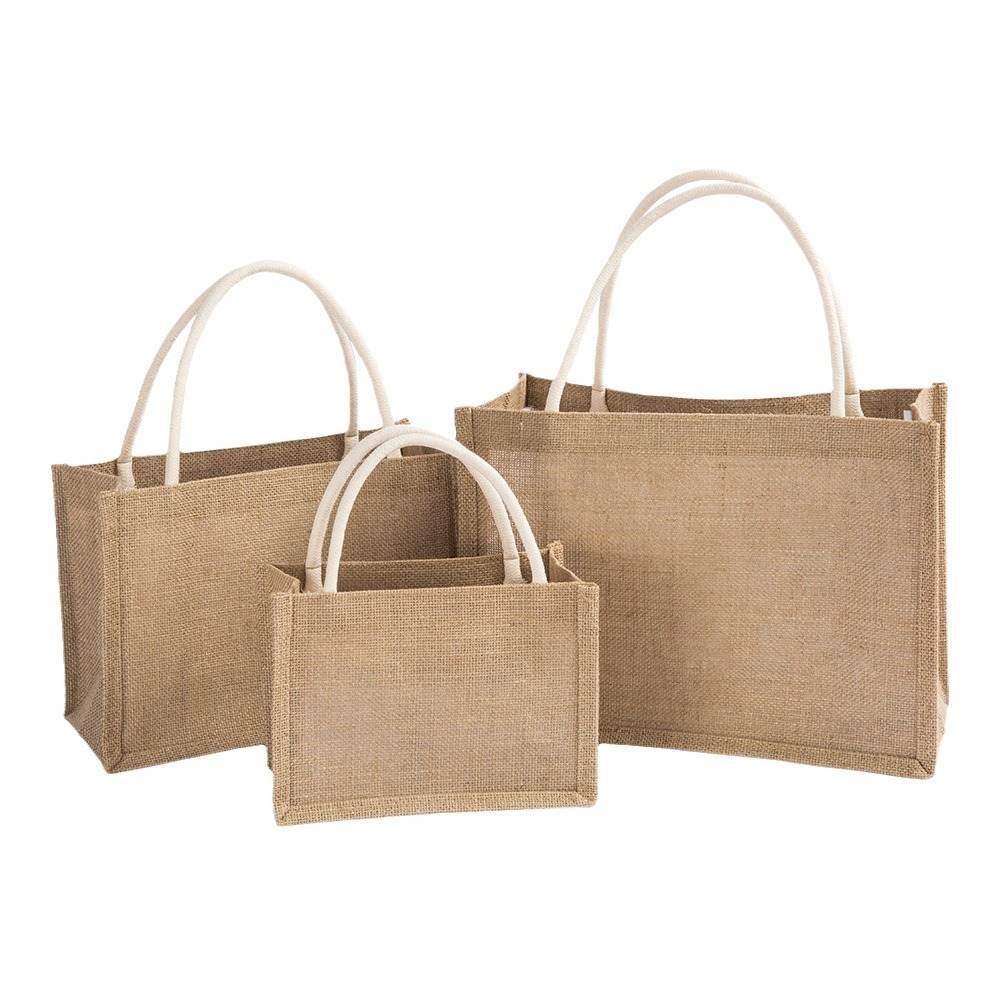
Backpacks
Versatility:
- Everyday Use: These bags can serve as both a personal carry bag and a shopping bag, making them a multifunctional alternative to plastic bags.
Benefits:
- Comfortable: Designed to distribute weight evenly, especially backpacks, which are easier on the shoulders and back.
- Spacious: Offering ample space for groceries, personal items, or work essentials.
- Easy to Carry: With sturdy handles or straps, they’re convenient for carrying various items without the hassle of disposable bags.
Best Uses:
- Daily Errands: Perfect for regular outings, work, or school.
- Grocery Shopping: Provides a strong and reliable option for carrying groceries.
- Personal Storage: Can hold personal belongings or even serve as an alternative to travel bags, especially for short trips or as carry-ons.
Stainless Steel or Silicone Containers
Benefits:
- Durable: Both stainless steel and silicone are highly resilient, resisting wear and tear over long periods.
- Long-Lasting: These containers can be reused countless times, reducing the need for disposable plastic bags or containers.
- Ideal for Wet or Bulk Items: Great for storing liquids, bulk foods, and prepped meals, as they prevent leaks and keep contents fresh.
Drawbacks:
- Higher Initial Cost: While they save money in the long run, the upfront cost of stainless steel or silicone containers can be more than single-use alternatives.
Use Case:
- Meal Prep and Packed Lunches: Ideal for storing and transporting meals, snacks, and leftovers.
- Zero-Waste Stores: Perfect for shopping in bulk and storing dry goods, as they eliminate the need for disposable bags and packaging.
Glass Jars and Containers
Sustainability:
- Reusable: Glass containers are highly durable and can be reused over and over without degradation.
- Recyclable: At the end of their life, glass jars can be recycled, making them a zero-waste option.
- Multi-Functional: They’re suitable for a wide range of uses, from food storage to household organization.
Best for:
- Storage of Bulk Items: Ideal for storing grains, pasta, and other bulk foods.
- Liquids and Dry Foods: Glass is non-porous, making it safe for liquids, oils, and spices.
Pros:
- Food-Safe: Glass doesn’t leach chemicals, making it a healthy choice for food storage.
- Eco-Friendly: By reusing and recycling glass jars, you can significantly reduce plastic waste and environmental impact.
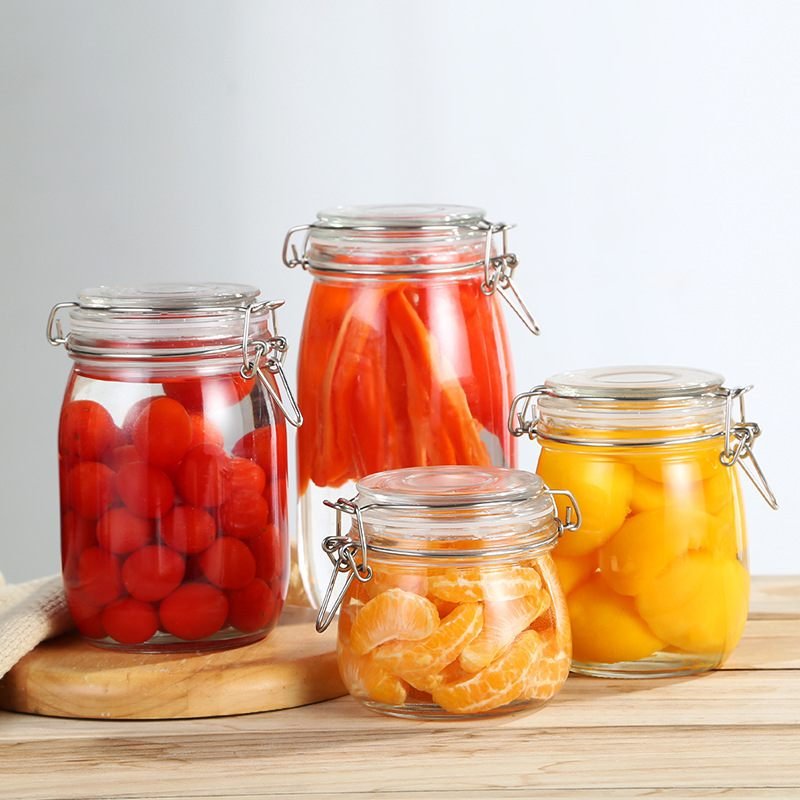
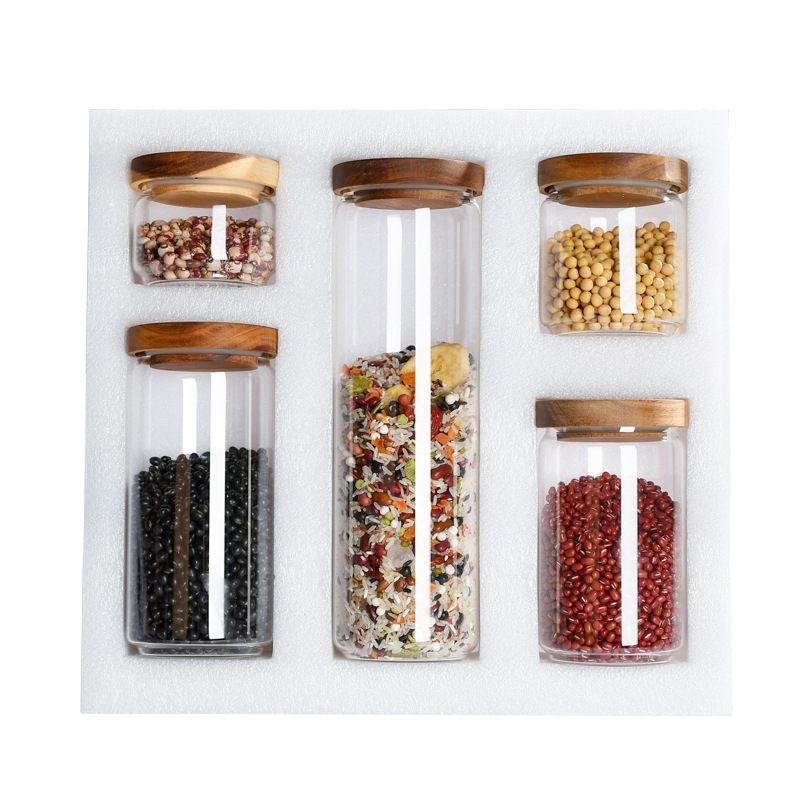
Beeswax Wraps
Features:
- Natural Materials: Made from cotton infused with beeswax, natural oils, and sometimes tree resin, providing a flexible and sticky surface ideal for food wrapping.
Best for:
- Wrapping Produce: Keeps fruits and vegetables fresh without plastic.
- Sandwiches and Snacks: Perfect for packing lunch items, as it molds around food items or containers.
Pros:
- Plastic Wrap Replacement: A sustainable alternative to single-use plastic wrap, reducing plastic waste.
- Reusable: Can be washed and reused multiple times, offering longevity.
- Compostable: At the end of their lifespan, beeswax wraps can be composted, returning to the earth without leaving waste behind.

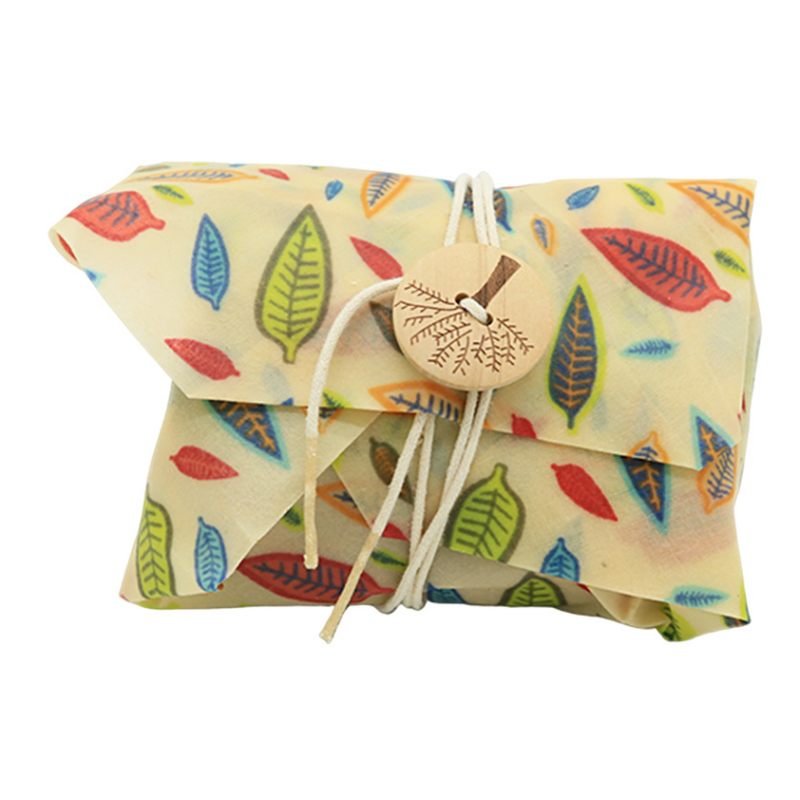
Benefits of Switching to Eco-Friendly Bag Alternatives
Environmental Impact
By choosing reusable and biodegradable bags, we reduce plastic waste and pollution, helping protect ecosystems and wildlife from the harmful effects of plastic.
Cost Savings
Reusable bags save money over time as they don’t need to be constantly replaced, unlike single-use plastic bags. This is beneficial for both individuals and businesses looking to cut costs on disposable products.
Health Benefits
Eco-friendly alternatives reduce exposure to plastic toxins, particularly in food storage, as materials like glass and stainless steel do not leach harmful chemicals into food, promoting better health for consumers.
Building Trust With Your Customers
Customers increasingly value ethical practices and seek brands that support sustainability. Offering eco-friendly bags shows your commitment to the environment, attracting shoppers who care about reducing plastic’s impact. This not only aligns with their values but also strengthens trust and loyalty toward your brand.
Brand Advertising Opportunities
Supporting eco-friendly shopping practices enhances your brand’s social impact, appealing to customers who prioritize sustainability. This not only strengthens your brand image but also opens up new marketing opportunities to drive sales.
Reusable bags with your company’s logo make powerful promotional tools, as customers can use them beyond your store, increasing brand exposure and awareness wherever they go.
Customize Your Eco-Friendly Shopping Bags With ITS Promotion
ITS Promotion is a provider of promotional products offering a wide variety of eco-friendly bags. We can help you create sustainable shopping bags customized with your logo and graphics. Whether you’re looking for recycled tote bags in bulk or other alternatives to single-use plastic bags, we have the perfect solution.
Explore our products to find bags and styles that suit your company’s needs, or reach out to us to learn more about our services.
Share This Post
Want To Get Promotional Products At Competitive Prices?
Our professional team will help you get whatever you want and finish all process.
We will provide a clear cost breakdown for your project, covering prototype creation, molding, testing, bulk orders, packaging, and shipping, along with expert advice on crafts, materials, and packaging.

